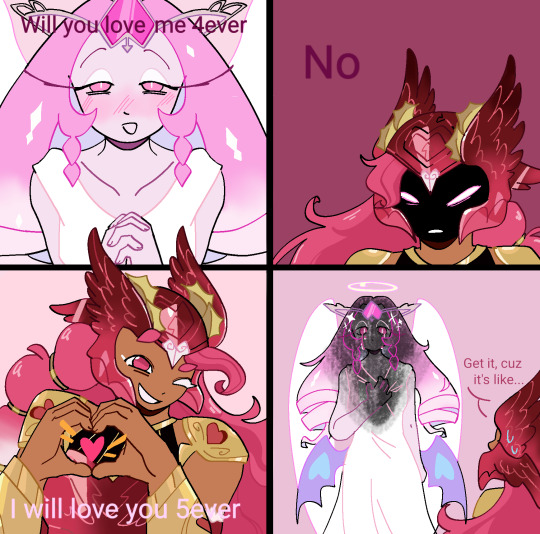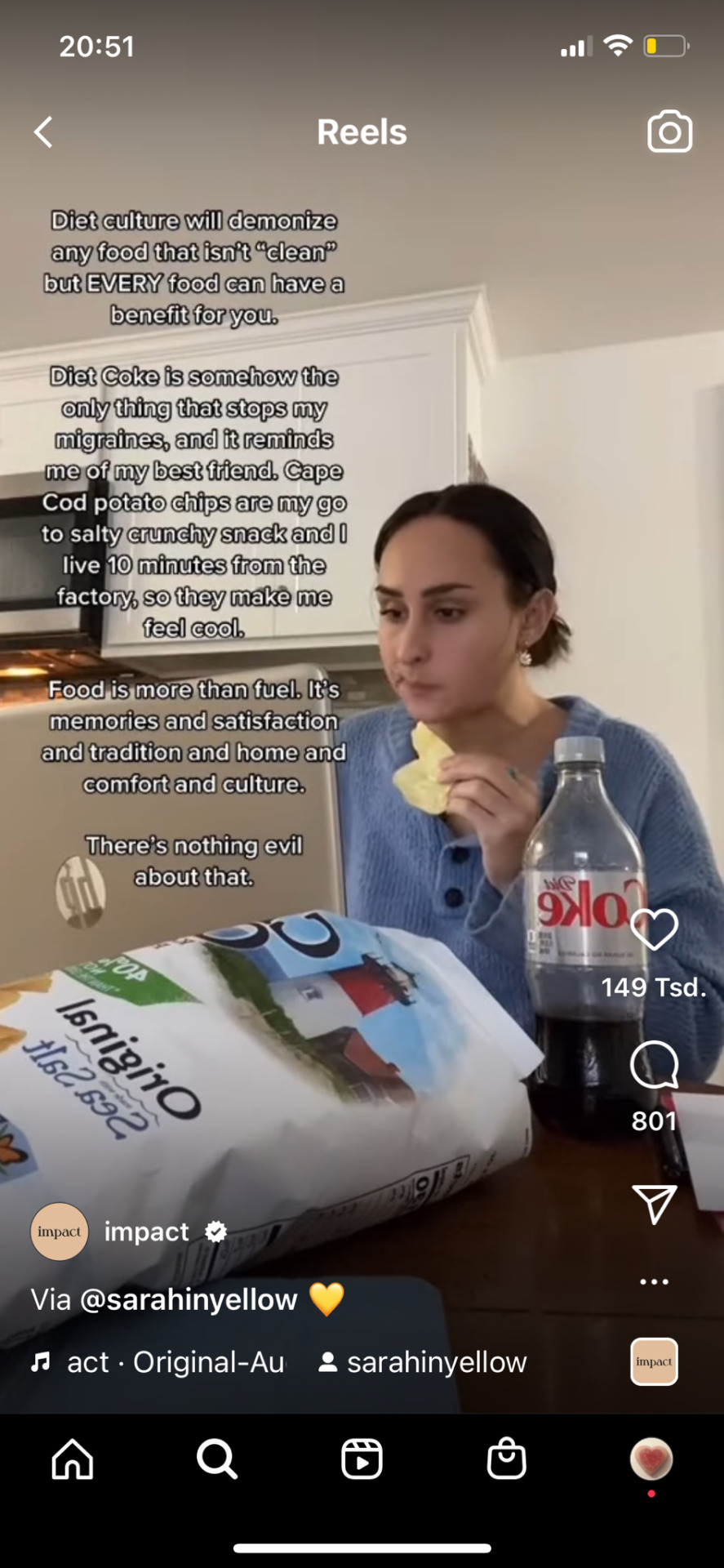Multifandom hell hi, |Eve is the name I go by most| they/them, (artist and writer but I don’t really post those here) [im an adult and will reblog potentially suggestive content be warned]
Don't wanna be here? Send us removal request.
Text
recently found out about the Chinese mountain cat. did you guys know about this
15K notes
·
View notes
Text
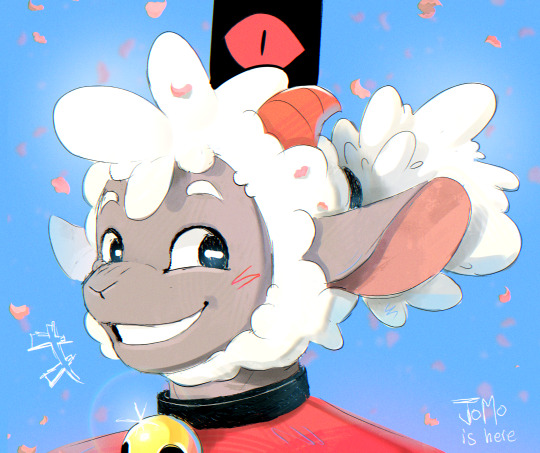
a little doodle that I made cause i wanted to draw the lamb with their wool tied back :3
i cant help but color everything
1K notes
·
View notes
Text

hey uh new type of ao3 spam comment just dropped. (I know it's spam because the fic they left this comment on . doesn't have chapters. lmfao). Report this kinda comment as spam and don't take it personally it is literally recycled bullshit
28K notes
·
View notes
Text
reminder that gazafunds is a great website.
each time you load the site, it shows one randomly selected, verified fundraiser that's low on funds.
extremely straightforward, & an easy to remember url. it's my go-to when I'm able to give; removes any room for procrastination or overthinking.
5K notes
·
View notes
Text
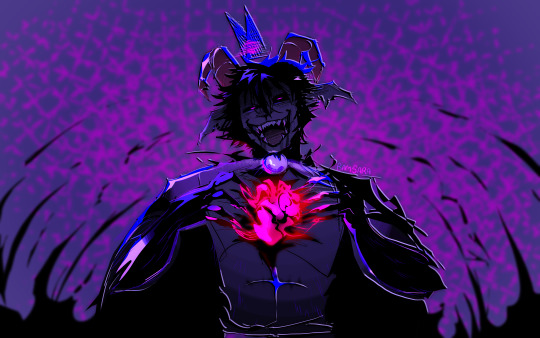
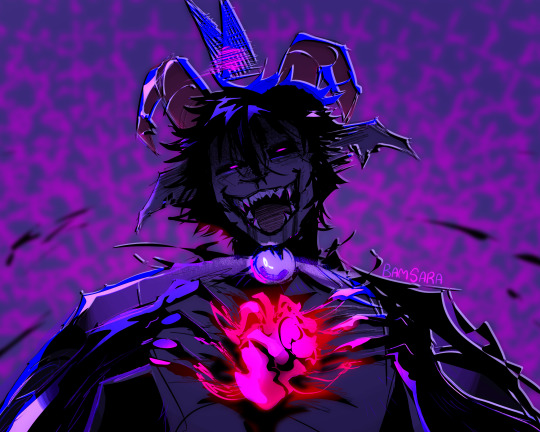
do you think they rip open their ribs as a party trick
2K notes
·
View notes
Text
when people like your OCs it is truly one of the best feelings ever. but when they also UNDERSTAND your OCs??? When they say or do something that just makes you go "oh they get it." UNBEATABLE.
19K notes
·
View notes
Text
It's impressive how Neil Gaiman vanished from the internet. Wish Rowling would do the same.
59K notes
·
View notes
Text
When people hear stories about abuse, they often get fascinated and interested in the abuser, and the 'mystery' behind their behaviour. They'll want to analyze what happened to this person to make them act in such twisted and sadistic ways, and they want to find the past event or past abuse that would 'explain it all'. Abusers will also, very happily recount the past abuse whenever it's time to explain away their behaviour, so nobody could hold them accountable, because after all, they had had it rough! Of course they're now abusive, it's only natural.
Fascination with explaining away abuser's behaviour often leaves victim's situation forgotten and ignored. Victims are supposed to just 'get over it', not be so sensitive, and be careful to not turn into abusers themselves, because after all, being abused means you become an abuser, according to the abuser. Except it doesn't, and victims often don't end up abusing anyone else, especially not in the horrific ways they themselves have been abused. So we're having two opposing stories: one is told by the abuser, and it's easy, simple, explains everything away, and it says, abuse causes future abusers, I am the proof, I was abused and now I am like this. Victim's story goes: I was abused, and now I struggle to function, I have cptsd, I have flashbacks, nightmares, panic attacks, anxiety, eating disorder. I struggle with suicidal feelings and wishing I didn't exist. I feel like I'm not important at all in this world and like I have no community, no family, no home. Failure of everyone to help me while I was being abused caused me to feel like an outcast from society, someone who isn't a part of it, who doesn't matter. I would never do this to another person, I feel like a part of me was torn away into pieces and I struggle to put myself back together.
Now that story is complex, it implicates the society in failing to stop the abuse and making the victim's life worse, it showcases the actual consequences of abuse, which are not 'becoming evil', but feeling ultimately traumatized and damaged, struggling to find joy and happiness in life in the aftermath. Society doesn't want to hear that; it makes abuse into a problem that should collectively be dealt with, rather than pushing it all onto individuals who find themselves trapped in it and suffering. It's much easier to pretend that abuse just makes someone abusive, and for people who are abusive, we need to feel sorry for, because they were 'made to be like this', and for those abused, we just need to shame them and control them so they don't become abusive themselves.
There are abusers who have lived privileged lives, there are abusers who have been spoiled and rewarded for their acts of abuse. Most abusers don't show the symptoms of trauma nearly as bad as the victims of abuse do, they're most often just having the symptoms of 'I lash out my anger on those who cannot defend themselves' and 'everyone needs to feel sorry for me because I am having the roughest time on the planet'. Weird how the victims almost never develop these two symptoms! Victims will go and compare their situation to everyone who has it worse, and will struggle to express or direct anger at anything.
So what is the actual source of abuse, if not past trauma? There's no study or statistics that can tell us that for sure, and abusers are careful to maintain their story and are not interested in being studied past what makes people feel bad for them. I would guess that it's a mix of entitlement, being in a position of power over someone vulnerable, never having to develop empathy or compassion, being rewarded continuously for acts of abuse, and social influence (admiring other abusers and wanting the power they have). A lot of social structures support and enable abuse of those who are at the very bottom of it, with very few protections against it. A lot of people believe it's their right to abuse someone if they have the power over that person, and gain power specifically for that cause. Abusers will have children and believe this is their property and they can do whatever they please with it, abuse being a part of it.
If we don't know where abuse comes from, how do we combat it? I don't believe in feeling sorry for the abusers or giving them endless attention, chances, excuses and rationalizations; instead I believe we should stand firm on the fact that abuse is inexcusable, and will have consequences, regardless of how it came into their behaviour. If abuse always had consequences, regardless of the history of the abuser, they would know they can't get away with it, that they can't later make everyone feel sorry for them and go on with their sob stories. Abuse would get them punished, not sympathized with.
I also believe the abuser's point of view should be decentralized; it should be victims who get to speak. It's easy for the abuser to show themselves in the positive light, minimizing the abuse, insisting the victim provoked or wanted it, that it wasn't that bad and it was done with 'best intentions'. But if we listened to victims, we would quickly understand that anyone who can do this to another person is monstrous, and should not be extended any sympathy. Abusers don't extend their sympathy to the victims when they abuse, so why should they expect to get it? Society should take abuse more seriously and put defenses into place, so abusers are not as easily able to put it behind closed doors. Resources for recognizing abuse, especially child abuse and intimate abuse, should be taught, spread and shared in society, so nobody would be able to convince another that suffering abuse is normal, or justified.
One of the biggest barriers to escaping abuse is victim confessing what's been happening to a trusted family member or a friend, and then this family member or a friend shaming and blaming them for it, instead of offering help and protection. It takes a lot of courage to even say something out loud, knowing the abuser would punish them for it, and then to be punished externally for speaking out, it's devastating. If abuse was taken seriously, and victims understood to be fault-free, but singled out, isolated and hurt in a way that nobody should be, and it was understood it's a societal responsibility to protect them against this, it would be easier to speak out, and get support. It often takes a society to help someone get free, because abusers are hell-bent on abusing once they start to, the victims need multiple barriers before abusers could get anywhere near them.
And why shouldn't we want that? If we know there are people in society such as children, young people, people without regular income, poor people, disabled people, compassionate people, marginalized people, people who struggle to recognize and flag down predators, shouldn't we want to make sure they're protected? That nothing bad happens to them, and they're free to live their lives safe from those who would do them continuous harm and make them want to die? We want our young, old, kind, vulnerable, sensitive, disabled, poor, compassionate and marginalized people safe and happy. There's no reason to throw them under the bus and leave them to suffer abuse.
875 notes
·
View notes
Text
i think there’s actually nothing better than being randomly told “I love you” after doing something characteristically stupid. Like what do you mean I’m a lovable person and I just did something silly and you thought “of course you would do that. I love you.”. No better feeling
90K notes
·
View notes


